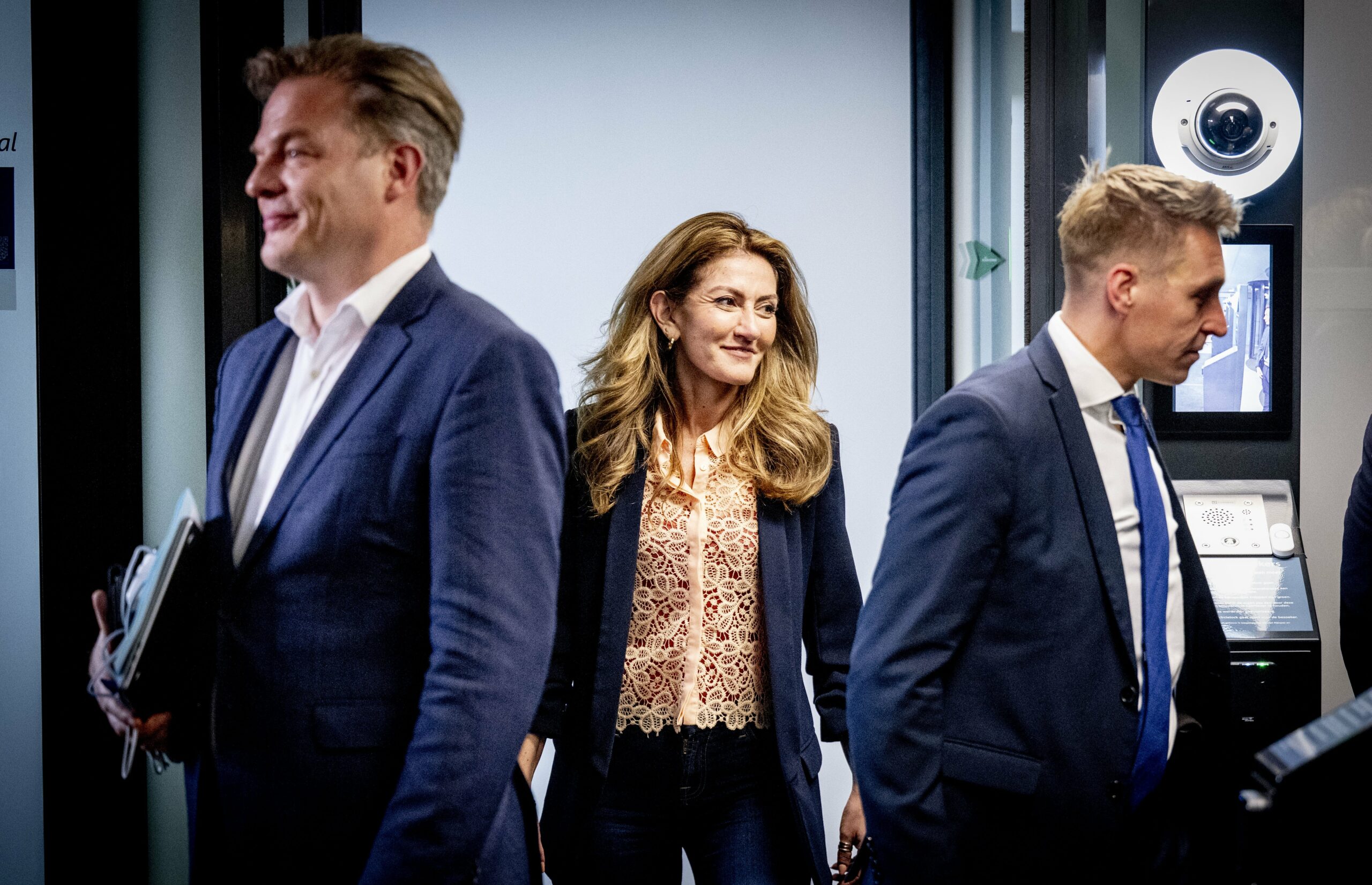Division of cabinet posts is latest hold-up for coalition talks

The parties forming the next Dutch government face a race against time to fill the cabinet posts before the self-imposed deadline of June 26.
Following the nomination of former intelligence service chief Dick Schoof as the next prime minister, the four parties had hoped to make quick work of putting the cabinet together.
But according to reports from The Hague, the last phase of negotiations have been bogged down by disagreements about the size of the cabinet and how the ministries should be shared out.
The right-wing parties PVV, VVD, NSC and BBB are said to want a smaller cabinet than Mark Rutte’s last administration, which had 20 ministers and nine junior ministers (staatssecretarissen).
Schoof and the four leaders have imposed strict radio silence for the last leg of the negotiations, but Pieter Omtzigt, leader of the NSC party, said “we need to have more conversations” to finalise the cabinet line-up.
“Everything is unusual”
Lead negotiator Richard van Zwol had hoped that the team of ministers could be sworn in on June 20. But it looks increasingly as if the traditional photocall with the king on the steps of Huis ten Bosch palace, known as the Bordesscene, will have to wait.
The talks are now expected to continue right up to the deadline of June 26 – one week before the summer recess begins.
Omtzigt has played down suggestions that the talks have run into difficulty. “Everything about this formation is unusual,” he told RTL this week. “I wouldn’t draw any conclusions from that.”
The main bone of contention is said to be the distribution of seats among the parties. Geert Wilders’s far-right PVV party is laying claim to up to six departments, including the new ministry for asylum and the health ministry, where Wilders’s co-negotiator Fleur Agema is expected to be installed.
The VVD has its sights on the finance ministry, where MP Eelco Heinen is the most obvious candidate, and the ministry for infrastructure. The party is looking to nominate four or five ministers, with likely roles for senior MPs Sophie Hermans and Bente Becker.
Foreign affairs
The VVD also has designs on the foreign affairs ministry, but here it will face a challenge from Omtzigt’s party, which sees career diplomat Caspar Veldkamp as the strongest candidate. NSC’s focus on tackling cost of living issues means the party is also likely to be given the social affairs ministry, as well as two others.
The farmers’ party BBB will almost certainly bag the agriculture ministry, whose name has been extended at the insistence of Caroline van der Plas to include fisheries. Van der Plas is also keen to give a post to Mona Keijzer, possibly at economic affairs.
Van Zwol expects the new cabinet to have between 25 and 30 members, which means only three or four posts would be trimmed.
Nature for the chop
One likely casualty is the ministry for nature and nitrogen, currently headed by the VVD’s Christianne van der Wal, which has become largely redundant now that the buyout programme for farmers is being abolished. Another option is to do away with one of the two junior ministers in the finance department.
But at least one new ministry is being created to handle asylum and migration, which are currently handled by junior justice minister Eric van der Burg.
All four coalition parties are expected to appoint a deputy prime minister, since Schoof is formally non-partisan since giving up his Labour party (PvdA) membership in 2021. Usually the prime minister is the leader of the largest party, with the coalition parties each entitled to a deputy.
Only full ministers have an automatic vote in cabinet meetings, although junior ministers can be invited and given voting rights on issues that fall within their portfolio.
Non-political ministers
Under the plan brokered by Kim Putters, chair of the social-economic council, for an “extra-parliamentary” cabinet, half the cabinet posts are supposed to be taken up by non-political appointees.
In practice, the concept of “non-political” is an elastic one. Previous cabinets have included ministers such as Ernst Kuipers and Menno Snel, who only joined D66 after being offered the positions of health minister and junior finance minister respectively.
On the other hand, the names Wilders is said to have put forward as non-political appointees include Halbe Zijlstra and Fred Teeven, who were ministers for foreign affairs and justice for the VVD in previous Rutte cabinets. Elbert Dijkgraaf, a former MP for the orthodox Christian SGP party, and former JA21 MP Marco Pastors have also been mentioned.
Vetting panel
One unresolved issue is who will take over the justice ministry from Dilan Yesilgöz, who will spend the next cabinet term as an MP after the four leaders agreed not to take up cabinet posts.
The ministers will be vetted publicly by a committee of MPs, a new procedure introduced for the current cabinet term, which is another reason the process is taking longer than usual.
Prime minister-elect Dick Schoof is excluded from the vetting, but opposition party GroenLinks-PvdA argues he should volunteer to be questioned because of his low public profile.
Thank you for donating to DutchNews.nl.
We could not provide the Dutch News service, and keep it free of charge, without the generous support of our readers. Your donations allow us to report on issues you tell us matter, and provide you with a summary of the most important Dutch news each day.
Make a donation